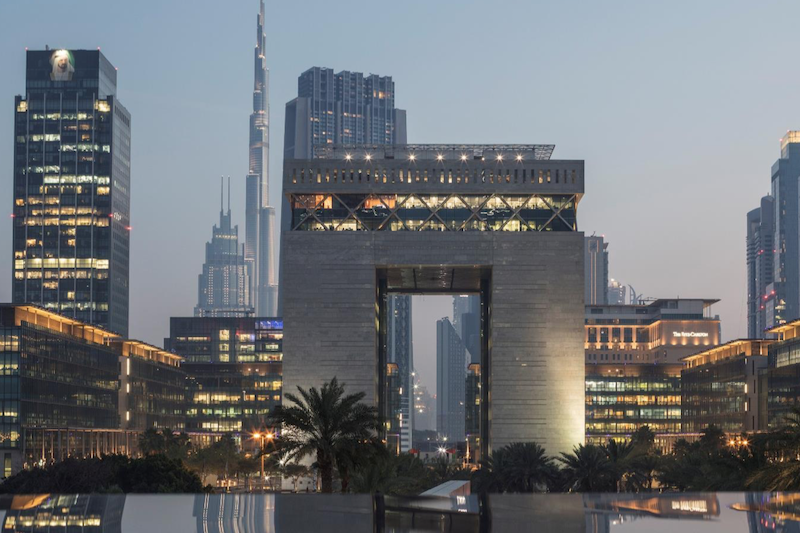By Charles Laubach and Silvia Pretorius
The Authors
Charles Laubach Charles is a partner at Afridi & Angell’s Dubai office. He has practiced as a legal consultant in the UAE since 1986. He advises on general corporate matters, military procurement and offsets, project finance, employment, and international trade controls. Charles is a member of the Pennsylvania and DC Bars. He holds a JD and an MA from the University of Pennsylvania, an MA from the University of London School of Oriental and African Studies, and a BA from Dartmouth College.
Silvia Pretorius Silvia Pretorius is a senior associate at Afridi & Angell’s Abu Dhabi office. She is involved in the firm’s corporate and commercial, banking, construction, and project finance practices. Silvia holds an LLB and BA from the University of Natal, South Africa. She is a member of Side Bar (Natal and Transvaal Provincial Divisions), South Africa. |
The UAE has had an offset programme for the better part of 30 years. It was originally conceived as an inducement for investment in industrial ventures in the UAE that would contribute to the diversification of the UAE’s economy. This underlying purpose continues today. However, the offset programme, as originally devised, looked for development in non-military and non- hydrocarbon sectors. This narrow focus has long been abandoned, leading the programme to landmark achievements in these sectors and others.
The offset programme has given rise to Mubadala, Abu Dhabi’s leading strategic investor, while the original defence focus of the offset programme has been assumed by the Tawazun Economic Council. But the original hallmarks of the UAE offset programme have remained constant — a focus on economic diversification, technology transfer and development of personnel; a target of 60 percent in offset credits based on the underlying procurement contract value; bank guarantees to ensure performance; and an eight year time frame (now reduced for some projects) within which to achieve the offset milestones — all governed by a contractual framework. The latest iteration of the guidelines for the offset program, published on March 31 on the website of the Tawazun Economic Council and called the Tawazun Economic Programme Policy Guidelines, clarify the program’s expectations and offer guidance to contractors.
The new guidelines afford increased scope for the development of technology-driven projects that extend beyond the defence and security industry, to now include aerospace; infrastructure and transportation; communication technology; education technology; sustainability, environment and climate change; food and water security; and other strategic sectors as advised from time to time by Tawazun.
With the added focus on technology integration, Tawazun will also consider projects that comprise dual-use of stand-alone specific technologies, such as artificial intelligence and big data analytics, blockchain, additive manufacturing, virtual and augmented reality, advanced information technologies, quantum computing and encryption, robotics, internet-of-things, advanced energy capture, storage and propulsion and smart materials and smart sensors.
Offset obligations are triggered when a supplier (or group of suppliers) reaches a threshold value of USD 10 million in awarded contracts. Under the previous guidelines, this would occur when the value of a series of contracts reached the threshold value. In a significant change, offset obligations now attach only when a single contract of no less than the threshold value is awarded. Contracts of lesser value awarded thereafter are also brought under the offset programme for as long as the supplier has an active account with Tawazun, but not contracts of lesser value awarded to a supplier with no active account with Tawazun.
Other aspects of the programme remain similar to the previous guidelines. A defence contractor must sign a framework Offset Agreement to enter the programme and then sign a separate supplemental agreement to govern the specific obligations incurred in respect of each supply contract.
Investment vehicle options available to defence contractors have been widened with the new programme. These now include investments (in the form of joint ventures with local partners, non-equity co-production, or technology co-development); contractual engagements with local businesses; and capability development programmes through which technical expertise is shared with local partners or employment created for UAE nationals.
Other key changes to the programme include the removal of input and output ratios for credits; the addition of enhanced parameters for the assessment and apportioning of credits (defence contractors can now generate credits in nine different ways); and a bonus multiplier scheme that rewards projects in the higher end value chain, that produce local content or create high skilled jobs for UAE nationals.
Defence contractors are now also permitted to “bank” or “trade” excess credits they have generated for a period of five years following the completion of a project, and use such banked credits against future obligations or transfer or trade these credits to other entities with obligations.
Where a project results in a shortfall in credits at the end of the period wherein a defence contractor is eligible to generate credits, a defence contractor can choose between either paying 8.5 percent of the shortfall value or rolling over the shortfall value by amending an existing (or by signing a new) supplemental agreement in order to perform another project.
In the case where Tawazun deems a project to be non-performing, it will notify the defence contractor and provide it 180 days to rectify the situation. In the case that the defence contractor is unable to rectify the situation, Tawazun may collect the maximum penalty by liquidating the full (or remaining) bank guarantee amount, declaring the defence contractor to be in default, notifying the relevant government entities, and/or taking further action as necessary.
It is hoped that the new programme will enable defence contractors to identify more accessible opportunities to generate offset credits and meet their obligations towards the UAE government. ■
|
Afridi & Angell Founded in 1975, Afridi & Angell is a leading full-service UAE law firm. The firm provides comprehensive and authoritative legal advice and innovative business solutions in banking and finance; corporate and commercial law; dispute resolution; projects; construction and real estate; employment; energy; project finance; transport; as well as doing business in Iran, the UAE and the DIFC. We advise local and regional clients ranging in size and sophistication from start-ups to some of the region’s largest public and private companies, governments and quasi- government institutions. We work extensively with entrepreneurs and investors from the region and beyond, and have attracted numerous international clients looking for the right counsel to protect and expand their interests. Afridi & Angell isa selected member of top legal networks and associations, most notably Lex Mundi, the world’s leading network of independent law firms, and World Services Group. |
|
Afridi & Angell’s inBrief provides a brief overview and commentary on recent legal announcements and developments. Comments and opinions contained herein are general information only. They should not be regarded or relied upon as legal advice. © 2019, Afridi & Angell |



